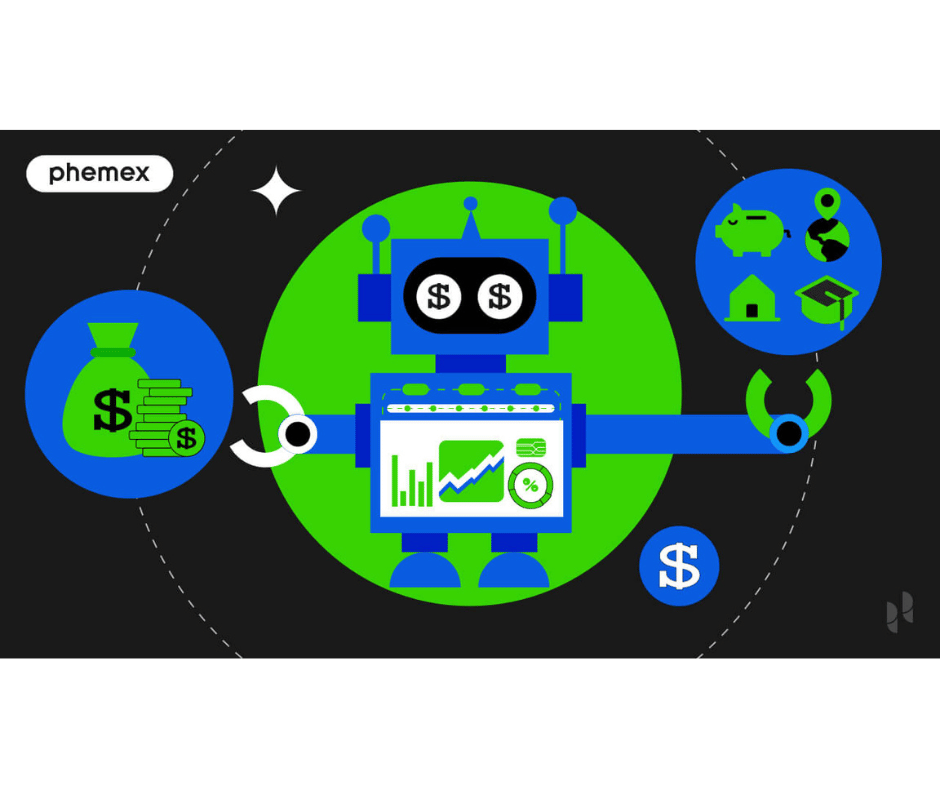Introduction to Robo-Advisors and Traditional Financial Advisors
Welcome to the world of financial advice! Regarding managing your money, the game has two leading players: robo-advisors vs traditional financial advisors.
Both options offer valuable guidance on investing and planning for your future, but they have distinct differences that may sway your decision.
In this blog post, we’ll dive deep into the advantages and disadvantages of each tactic so you can make an informed decision.
To learn more about the intriguing world of robo-advisers versus traditional financial advisors, please get a cup of coffee, relax, and read on.
Pros and Cons of Robo-Advisors
Pros and Cons of Robo-Advisors
Robo-advisors have gained popularity in recent years, offering a convenient and low-cost way for individuals to manage their investments. However, like any financial service, there are both pros and cons to using robo-advisors.

Best Payday Loan Company in the USA
everydaylivehappy.com@gmail.com
One of the significant advantages of robo-advisors is their accessibility. They provide a user-friendly platform that allows investors can easily open an account and begin investing right now.
Unlike traditional advisors, who may require a minimum investment amount or charge high fees, robo-advisors often have low or no minimums and lower fees.
Another benefit is the use of technology-driven algorithms. These algorithms analyze market trends, risk tolerance, and investment goals to create personalized portfolios for each investor.
This automated approach eliminates human bias and emotions, potentially leading to more objective investment decisions.
Additionally, robo-advisors offer convenience through 24/7 access to your investments. You can monitor your portfolio’s performance anytime through online platforms or mobile apps.
This flexibility empowers individuals to stay informed about their investments without relying on regular meetings with a financial advisor.
On the other hand, one possible negative aspect of robo-advisors is the need for more human interaction.
While some investors prefer this hands-off approach, others may value personal advice tailored to their circumstances.
Traditional financial advisors can provide individualized guidance based on factors such as tax planning strategies or retirement planning that algorithms alone may not consider.
Furthermore, although automation brings efficiency and cost savings for many investors, it also means limited customization options compared to traditional advisors who can tailor their recommendations based on unique client needs.
Concerns about data security exist when entrusting personal information with an online platform rather than building face-to-face relationships with trusted professionals.
In conclusion,
it’s essential for individuals considering using robo-advisory services to weigh these pros and cons against their personal preferences and financial goals. While robo-advisors can offer convenience
Pros and Cons of Traditional Financial Advisors
Traditional financial advisors have been around for decades and have built a reputation as trusted experts in the field of finance. Here are some pros and cons to consider when deciding whether or not to work with a traditional financial advisor.

Discover Kia Finance: Flexible and Comprehensive Financing
One significant advantage of working with a traditional financial advisor is their personalized guidance.
These professionals take the time to understand your financial situation, goals, and risk tolerance before creating a tailored investment plan. They provide one-on-one advice and support, helping you navigate complex investment decisions.
Another benefit of traditional advisors is their expertise and experience. Many have advanced degrees in finance or related fields, along with years of industry knowledge.
This level of expertise can be valuable when making important monetary choices that might affect your future prosperity.
On the downside, traditional financial advisors often incur higher fees than robo-advisors. Their services typically involve more hands-on management and personal attention, increasing client costs. This may make them less accessible for those on a tight budget or looking for low-cost investment options.
Additionally, working with a traditional advisor can sometimes mean limited accessibility outside regular business hours.
It could be difficult to reach your adviser if you want emergency help or have urgent queries regarding your assets after hours.
It’s also worth noting that some individuals prefer having control over their investments rather than relying on someone else’s advice.
Traditional advisors may steer clients towards specific investment products based on their preferences or incentives from third-party providers.
While there are clear advantages to working with traditional financial advisors, such as personalized guidance and expert knowledge, high fees and limited accessibility outside of regular business hours might be deterrents for some investors who prefer more control over their investments or lower-cost alternatives like robo-advisors
Critical Differences Between Robo-Advisors and Traditional Financial Advisors
You have two main options when managing your finances: robo-advisors and traditional financial advisors. While both serve the purpose of helping you make investment decisions, there are critical differences between the two.

One significant difference is the level of human interaction. Traditional financial advisors offer personalized advice and guidance tailored to your goals and circumstances.
They consider risk tolerance, time horizon, and financial situation to create a customized investment plan. On the other hand, robo-advisors rely on algorithms and automated systems to provide investment recommendations based on your answers to an online questionnaire.
Another difference lies in fees. Traditional financial advisors typically charge higher prices compared to robo-advisors.
This is due to the added cost of their expertise and the personal attention they provide. Robo-advisors, being automated platforms, can offer lower fees since they don’t require as much human intervention.
Additionally, accessibility is a differentiating factor between the two options. Robo-advisors are generally more accessible for individuals with smaller portfolios or those who prefer a DIY approach.
They often have lower minimum investing requirements than traditional financial advisors, who may require substantial initial investments.
Furthermore, regarding decision-making speed and efficiency, robo-advisors have an edge over their traditional counterparts.
With automation driving their processes, robo-advisors can quickly execute trades without delays or emotional biases that may influence human decision-making.
However, one area where traditional financial advisors excel is providing holistic financial planning services beyond investment management.
They can assist with estate planning strategies, tax optimization strategies, retirement planning advice, and more complex areas that may benefit from expert guidance.
In conclusion, navigating between a robo-advisor and a traditional advisor ultimately depends on your preferences, circumstances, and needs.
Determining factors include:
- The level of human interaction desired.
- The complexity of your finances.
- Your investing experience.
- Your technology comfort.
Taking the time to consider these factors carefully will
Which Option Is Best for You?
When choosing between a robo-advisor and a traditional Financial adviser, there are many things to think about. Each option has its advantages and disadvantages, so it’s essential to evaluate your individual needs and preferences before deciding.
One key factor to consider is the level of human interaction you desire. If you prefer face-to-face meetings and personal guidance, a traditional financial advisor may be best for you.
These advisors can provide personalized advice explicitly tailored to your goals and circumstances.
On the other hand, if you value convenience and accessibility, then a robo-advisor might be more suitable.

Unlocking Empowering Financial Solutions: Exploring OneMain Financial Personal Loan Offerings
You may access an automated platform that employs algorithms to build investment portfolios depending on your risk appetite and financial objectives with just a few clicks.
Another aspect to consider is cost. Traditional financial advisors typically charge higher fees for their services compared to robo-advisors.
This is because they offer personalized attention and expertise that comes with years of experience in the field.
Robo-advisors, on the other hand, tend to have lower fees due to their automated nature. However, it’s important to note that some may still charge additional fees for certain services or account sizes.
Additionally, considering your comfort level with technology is crucial when deciding between these options.
Robo-advisors rely heavily on online platforms and digital interfaces for communication and account management.
If navigating technology effortlessly is not your strong suit or causes anxiety, working with a traditional advisor offering more hands-on assistance may be preferable.
The greatest choice for you will be determined by your particular circumstances and preferences. Before choosing a choice that is in line with your long-term financial objectives, it is It’s vital to carefully weigh the benefits and drawbacks of each technique.
Factors to Consider Before Choosing a Financial Advisor
Considerations to Make Before Selecting a Financial Advisor
It is essential and may have a big influence on your financial future to choose the correct financial advisor. With so many choices accessible, it’s essential to take into account a number of aspects before making your decision.

What are the CFO’s priorities for transforming the finance department?
Assess the advisor’s credentials and qualifications in the first place. Look for credentials like the Chartered Financial Analyst (CFA) or Certified Financial Planner (CFP) designations.
These titles signify that the adviser has completed extensive training and adhered to strict industry standards.
Next, consider their experience in the field. How long have they been working as a financial advisor? Do they specialize in any particular area of finance?
An experienced advisor with expertise in your needs can provide valuable insights and tailored advice.
Another crucial factor is understanding how the advisor gets compensated. Some advisors work on a commission basis, earning money through product sales, while others charge fees based on assets under management.
Please ensure you’re comfortable with their compensation structure and understand potential conflicts of interest.
Additionally, consider the type of services offered by the financial advisor. Are you looking for comprehensive wealth management or assistance with retirement planning? Determine whether their services align with your goals and requirements.
It’s also essential to assess an advisor’s communication style and availability. You want someone who regularly updates you on portfolio performance and is readily accessible when you have questions or concerns about your investments.
Remember to ask for references or testimonials from existing clients. Hearing firsthand experiences from others can provide valuable insight into an advisor’s professionalism, trustworthiness, and overall satisfaction.

Environmentally sustainable company at the 4th ESG Finance
Remember that choosing a financial advisor is not a one-size-fits-all decision; it depends on your unique circumstances and preferences. Take the time to thoroughly research potential advisors before making your final choice – after all,Your financial future will be significantly influenced by this individual!
conclusion
In conclusion, comparing robo-advisors and traditional financial advisors reveals a dynamic landscape in the financial industry.
Robo-advisors offer cost-effective and convenient solutions for investors seeking automated portfolio management, while traditional advisors provide personalized guidance and expertise.
The choice between the two ultimately hinges on individual preferences, financial goals, and the level of human interaction desired.
Investors should carefully evaluate their specific needs and priorities before deciding, as both options have their merits and can play valuable roles in a well-rounded financial strategy.
Ultimately, the ideal approach may involve a combination of both, blending automation and human expertise for a balanced and tailored investment experience.




One thought on “Comparing robo-advisors vs traditional financial advisors”